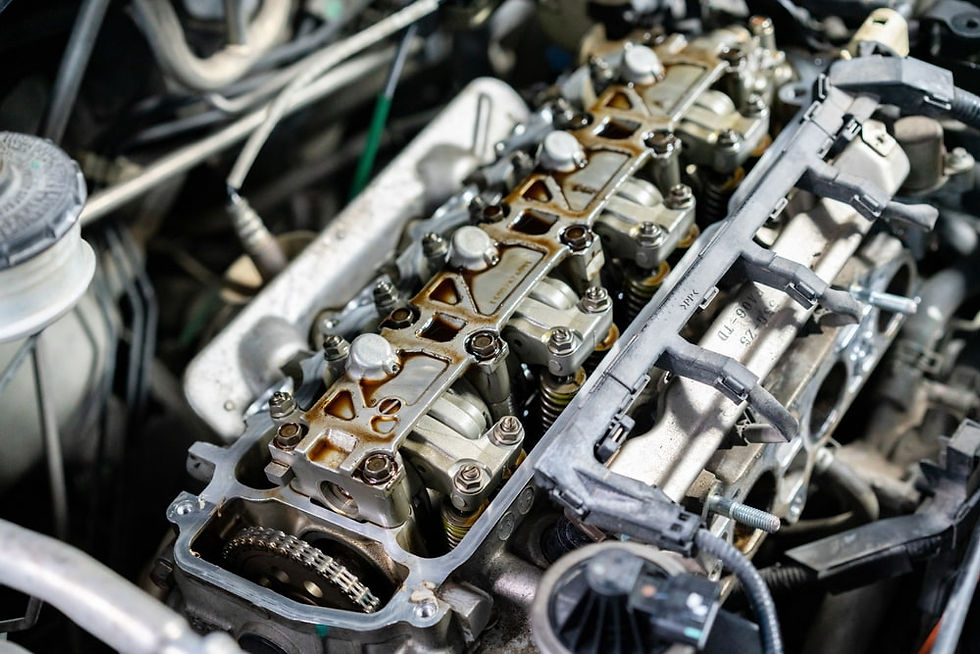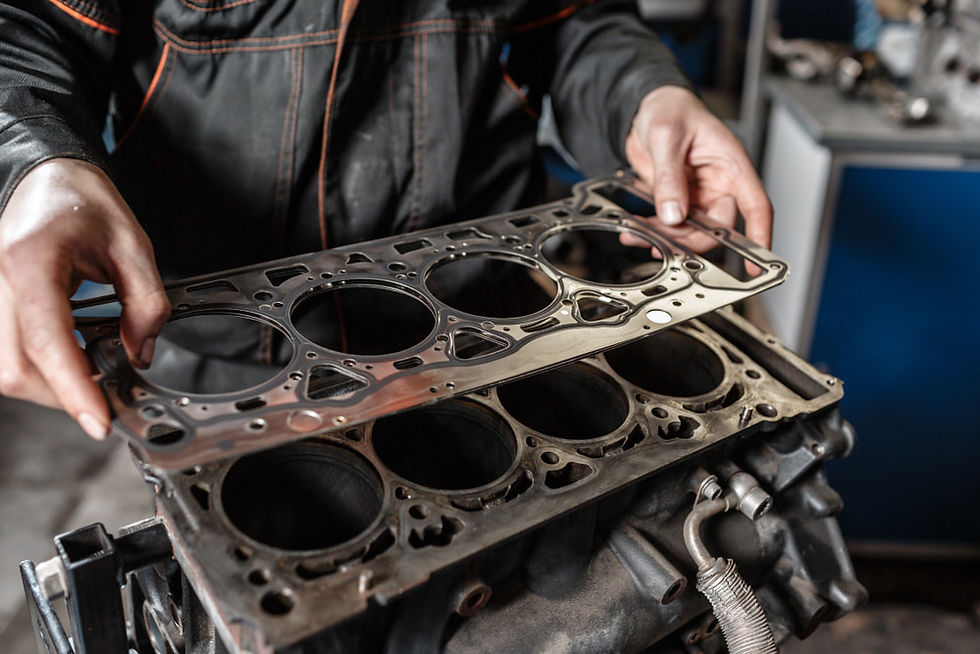Signs Your Engine Might Need a Full Reseal
- jordan480
- Sep 5, 2025
- 3 min read
Your car’s engine is built to withstand heat, pressure, and years of use—but even the toughest engines can develop leaks as seals and gaskets wear out. While replacing a single gasket may solve a minor problem, sometimes the bigger solution is a complete engine reseal. The challenge is knowing when it’s time to visit Orange County’s engine-out reseal service. Ignoring the warning signs can lead to worsening oil leaks, poor performance, or costly damage. So, how do you know it’s time to schedule a visit? Let’s look at the most common red flags that point to deeper issues in your car engine.
How do I know if my engine needs a reseal?
There are numerous ways to tell that it’s time to get your engine out and perform a full reseal. While some minor leaks can be patched with minor interventions, most of the time, you are looking at a process that involves completely removing the engine from your vehicle. Let’s explore some obvious signs that it’s time to visit your mechanic.

1. Persistent oil leaks
A small drip under your car could be a single worn gasket. But if leaks keep reappearing despite replacing parts like the valve cover or oil pan gasket, it may be a system-wide issue. Multiple leaks are a strong indicator that seals across the engine have hardened, cracked, or simply reached the end of their lifespan.
2. Excessive oil consumption
If you’re constantly topping off oil between changes, even though there’s no visible leak, the seals may be allowing oil to seep internally. Worn gaskets can let oil burn off in the combustion chamber or escape into places where it’s harder to spot. This is not only wasteful but can starve your engine of proper lubrication over time.
3. Smoke & burning smell
A common symptom of bad seals is oil leaking onto hot parts of the engine. This causes smoke under the hood or a sharp burning odor while driving. In some cases, you may see blue exhaust smoke, which signals oil is leaking past seals into the cylinders and burning with fuel. Either way, it’s a clear sign of a deeper sealing problem.
4. Low oil pressure
Oil pressure is vital to keeping moving parts lubricated. When seals and gaskets fail, leaks can reduce oil levels enough to cause low oil pressure. Warning lights on your dashboard—or a noticeable drop on your gauge—shouldn’t be ignored. Continued driving with low oil pressure risks major internal damage, making resealing a smarter option than waiting for a rebuild.
5. Contaminated oil or coolant
When gaskets fail, fluids can mix in places they don’t belong. If you notice milky oil on the dipstick or oil floating in your coolant reservoir, it could mean seals around the head or intake are no longer doing their job. This type of contamination accelerates wear and often calls for a complete reseal.
6. Difficulty keeping the compartment clean
Do leaks or grime reappear within days, even after frequently scheduled engine cleaning? That’s another red flag. Old seals allow oil and fluids to seep out from multiple spots, and no matter how much you clean, the problem keeps returning. If the mess spreads across the engine compartment, a reseal is usually the most effective long-term fix.

Who are Orange County’s top engine-out reseal pros?
Noticing constant oil leaks, burning smells, or unexplained low oil levels? These could be signs your engine is overdue for a reseal. At Chimera Motors, our reliable experts in Orange County specialize in diagnosing problems and providing safe engine detailing with proven methods. We’ll thoroughly inspect your engine, explain your options, and deliver precise service to get you back on the roads of Saddleback Valley and further away. Don’t wait for small leaks to turn into major repairs. Call today!














Each point is explained without ambiguity, similar to Hokivip.
This article avoids vague explanations, similar to Soju88.
The wording here feels precise and intentional, similar to Soju88.
Practical insight without exaggeration is refreshing, like DESA55.
The focus on clarity makes this useful, similar to DESA55.